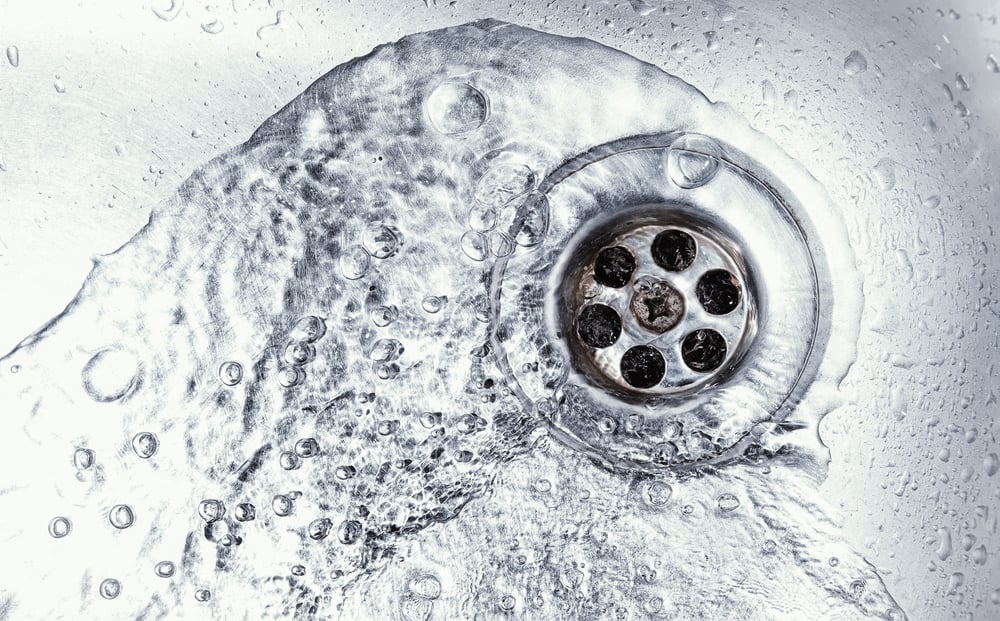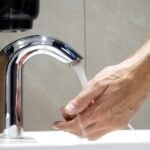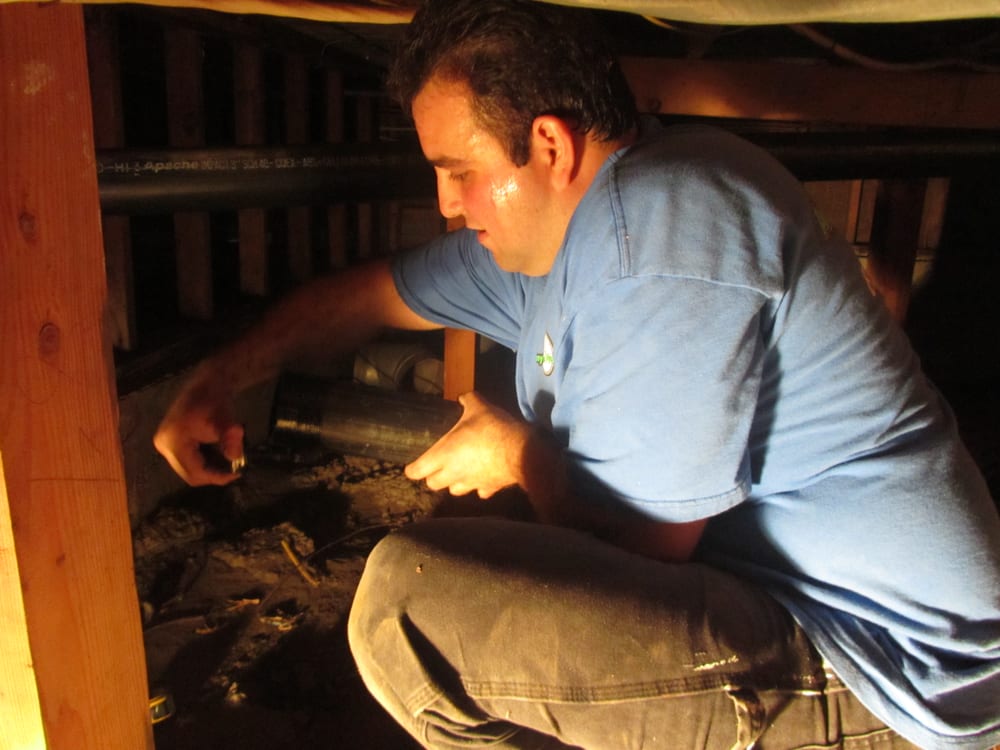
The Crucial Tips You Need to Know for the Maintenance of Drains
- By: Amer ZaghloulehDrainsComment: 0
Consider what goes down your drains and through your plumbing system every day. For instance, diverse food and grease particles get washed down the drain as you wash up. Or hair and soap scum from the shower or bathtub. If you don’t clean out your kitchen sink and shower drains regularly, a buildup could ensue and cause havoc on your drainage system.
In this article, we’ll go through everything you need to know about the essential task of drain pipe maintenance.
Benefits of Regular Drain Pipe Maintenance
Although drainage pipe maintenance is not the most glamorous task, the benefits are well worth it.
It Helps Reduce Blocked Drains
Not regularly cleaning your drainage system may result in an accumulation of solid matter. This collection will eventually clog the drain if left too long. Regular maintenance gets your pipework to drain faster.
Eradicates Bad Odors
Waste matter gives off unpleasant odors when it sits in your drains. A regular clean-out will banish foul odors and keep your drainage fresh.
Avoid Expensive Repairs
When a clogged drain develops into a bigger problem, you may experience inconvenient and messy symptoms. With regular maintenance, you can avoid paying for expensive plumbing repairs.
It’s Eco-Friendly
Regularly maintaining your drains makes you less likely to need strong chemical cleaners to clear blockages. Many commercial products aren’t great for the environment or local wildlife. And they also cause damage to your pipes.
It Improves the Lifespan of Your Drainage
Regular maintenance of drains minimizes the damage that accumulation causes over time, therefore, can increase the lifespan of your drainage system.

How Often Should You Maintain Your Drains?
Debris, limescale, grease, or silt will naturally accumulate throughout your drainage system. And if you don’t experience a blockage with scaled pipes, it will slow the capacity and flow of your drainage and lead to an obstruction.
Scale develops quickly in the kitchen sink drains and pipes, the bathtub, washbasins, and underground drains. To avoid increasing the chance of clogs, be mindful of what goes down your drain in addition to regular maintenance.
5 Drain Maintenance Tips
By developing small daily, weekly, and monthly drain maintenance habits, you’ll save yourself a major headache in the long run. Here are five ways you can keep on top of drainage maintenance.
1. Daily Drain Maintenance
Start by preventing these four major blockers from going down your drain:
- Coffee grounds
- Cooking grease
- Soap scum
- Hair
Here’s how you can dispose of these items instead.
- Your coffee grounds can go straight into the trash or compost.
- Cooking oil can be collected in an old tin or jar and go into the trash or compost.
- Purchase a mesh sink strainer to prevent hair and soap scum from going down the drains.
2. Weekly Drain Maintenance
This simple weekly drain maintenance tip only takes five minutes and can help dislodge leftover debris or grease. Here’s how to flush your drain:
- Boil a large pot of water.
- Pour half of the boiled water down your kitchen sink or bathroom drains.
- After five minutes, pour the rest of the water.
This task is ideal for kitchen drains if you are wondering how to keep the kitchen drain clean. By doing this weekly, your drains will thank you for it.
3. Monthly Drain Maintenance
You can use an enzyme cleaning product like drain sticks to keep your drains fresh and clean. Drain sticks are effective in drainage pipe maintenance and offer powerful natural bacteria and enzymes to break down almost anything that gets stuck. You just need to use pop one stick through the plughole each month, and it will get to work.
Drain sticks typically come in packs of 12 for year-round maintenance.
4. Seasonal Drain Maintenance
Drainage pipe maintenance is ongoing, and the money spent on drain maintenance products can quickly become a small fortune. Fortunately, DIY (do-it-yourself) drain treatments are economical and safer than commercial drain maintenance products. This mixture is effective and made from items you will likely have stored in your pantry.
How Does a DIY Drain Cleaner Work?
Not all clogs require the strength of a chemical drain cleaner, and many commercial products can contribute to damage to the drains. Slow drains can be cleared using a homemade concoction of boiling water, baking soda, and white vinegar.
This reliable recipe for fighting minor clogs has baking soda as a base substance because of its sodium bicarbonate content and vinegar because it’s a mild acetic acid. Combined, they create a bubbly, fizzy action that releases carbon dioxide, loosening clogs when poured down the drain. When followed up with boiling water, this assists further in flushing away debris or clogs.
How to Clear Clogs With DIY Drain Cleaner
For your DIY drain cleaner, you’ll need the following:
- Drain stopper
- Bucket
- Cup
- Boiling water
- 1/2 cup baking soda
- 1/2 cup of white distilled vinegar
Then follow these steps:
- Remove any standing water. If your shower, tub, or sink has backed-up water, get rid of as much of it as you can using the cup and bucket. It’s okay to have a little leftover in the drain opening; however, the shower, tub, or sink should be mostly empty.
- Pour a small pot full of boiling water down the drain.
- Follow the boiling water with 1/2 cup of baking soda down the drain.
- Top it off with 1/2 cup of vinegar down the drain.
- Cover the drain and allow the cleaning mixture to work for at least 10 minutes. Covering the drain forces the reaction to go down instead of coming up. However, covering the drain is not essential.
- Pour another pot of boiling water into the drain to wash away any clogs loosened by your mixture.
- Flush the drain using hot water from the tap to help clear away any remaining debris.
Repeat the process as required. This natural flush mixture can be used at any time of the year and perhaps a handful of times; it’s safe enough to use as a monthly drain cleaner.

5. Garbage Disposal Unit Maintenance
Here’s another DIY maintenance tip that not many people know. Running slices of orange peel and ice cubes through your garbage disposal unit removes residue from the blades while sharpening them.
Ice cubes sharpen the blades while assisting the orange peel in dislodging attached food remnants or attached particles. To use this maintenance tip, ensure the orange peel is sliced, as large chunks of orange peel can have a reverse effect and jam up the garbage disposal.
Chemical Drain Maintenance Treatment
Chemical cleaners should be avoided and only used as an absolute last resort. Here are some of the main reasons to ditch that chemical drain cleaner:
- It emits unhealthy fumes.
- It can cause severe burns.
- It can weaken the pipes.
- It can cause damage to the septic tank.
- It is often ineffective and can make the problem worse.
- It is not eco-friendly.
- It is dangerous to children and pets.
When used regularly, the damage chemical drain cleaners cause to pipe seals and the pipe material may lead to other problems like leaks. Consider prioritizing natural alternatives such as the DIY drain cleaner above.
However, there are times when a problem develops, and your drain cleaning and maintenance attempts are ineffective. In that case, consider hiring an experienced plumber to clean your drains.
How to Tell That Your Drainage Needs Professional Cleaning
Here are five signs that your drainage system needs professional cleaning:
1. Terrible Odor
A foul odor from your bathroom or kitchen could signify that it’s time to clean the pipes. First, ensure that the smell is coming from the drains. Several factors could be causing the smell, including a buildup of gunk or problems with the sewer system.
Whatever the cause, contact a plumber to inspect and clean your drains, as hot water and soap will not be enough to fix the problem in this scenario.
2. Strange Sounds
Unfamiliar sounds can be alarming when you don’t know what’s causing them. Although many sounds in the home may be harmless, once your drains start to make weird noises, it’s likely a sign of a problem.
You may notice gurgling sounds when it’s draining if the problem is a clogged drain. Gurgling is generally a sign of a block. This sound is caused by a release of air bubbles as the water slowly passes through the blockage. If ignored, the jam leads to a fully clogged drain.
You’ll know it’s time to call a professional plumber if you notice the gurgling sound from several drains simultaneously. This points to a clog in the main sewer system that a professional must fix.
3. Common Clogs
You may have noticed many plumbing fixtures are struggling to drain. For example, the water in the kitchen sink or bathtub appears to stand for a while and takes ages to go down the drain. Or whenever you open the dishwasher, it has more water than it should.
These indicate a bigger problem. If clogs have been a common occurrence, this is a sure sign that a plumber will need to inspect a possible problem in the main sewer.
4. Slow Drainage
Although standing water isn’t uncommon, it’s never a good sign. Stagnant water in your shower or bathtub is likely due to a buildup of self-care products and hair. If it’s happening in the kitchen sink, grease and food are likely culprits.
Usually, standing water isn’t a massive cause for panic, but once you notice it, contact a plumber immediately. They’ll ensure the clog is dealt with thoroughly and no further damage is caused to your pipes.
5. Puddles in the Backyard
Sometimes it can be challenging to connect the strange occurrences inside the home with those happening outside. The best example of a clogged drain is when puddles begin to develop in the garden.
You can verify whether a puddle could be a cause for concern if a) it’s unusual for a puddle to form in a particular area of your backyard and b) it hasn’t rained recently. If one day you find yourself pondering over whether a puddle has always been there, take it as an indication to call a plumber.
Puddles in the yard could be a symptom of a congested drain in your yard. It isn’t uncommon for leaves, twigs, and sticks to end up inside your external drainage and cause a clog.
A plumber can quickly fix the problem if you notice and address it reasonably early. On the other hand, if the problem has been allowed to develop, it could cause considerable damage to your home’s foundation.

How Do Plumbers Clean Out Drain Pipes?
Experienced plumbers will have access to a range of tools they can use to clean your drains thoroughly. They may decide that a “hydro-jet” would be best to give your drains a good clean.
Hydro-Jetting
A hydro-jet will break through a clog and deliver a thorough scouring inside the drainage system. This device is a hose with a 360-degree directional nozzle at the end. The plumber will push the hose down into the drain to allow high-pressure water blasts from the nozzle to clean the drain. This pressure is sufficient to thoroughly wash away anything clinging onto the pipe walls, making it difficult for another buildup to develop.
Hydro-jetting can be dangerous if misused, so it’s best left to an experienced plumber.
The Best Drain Maintenance Advice
To help keep your drainage system clog-free prevent cooking oil, food, hair, and soap scum from draining. Keep them clean by regularly flushing them with boiling water or using a natural cleaning mixture of baking soda and vinegar.
If you notice persistent symptoms, there could be a bigger problem somewhere. A professional plumbing service like Anytime Plumbing will be more than happy to help. They’ll investigate and then do what’s necessary to get your drainage system back up to speed.







